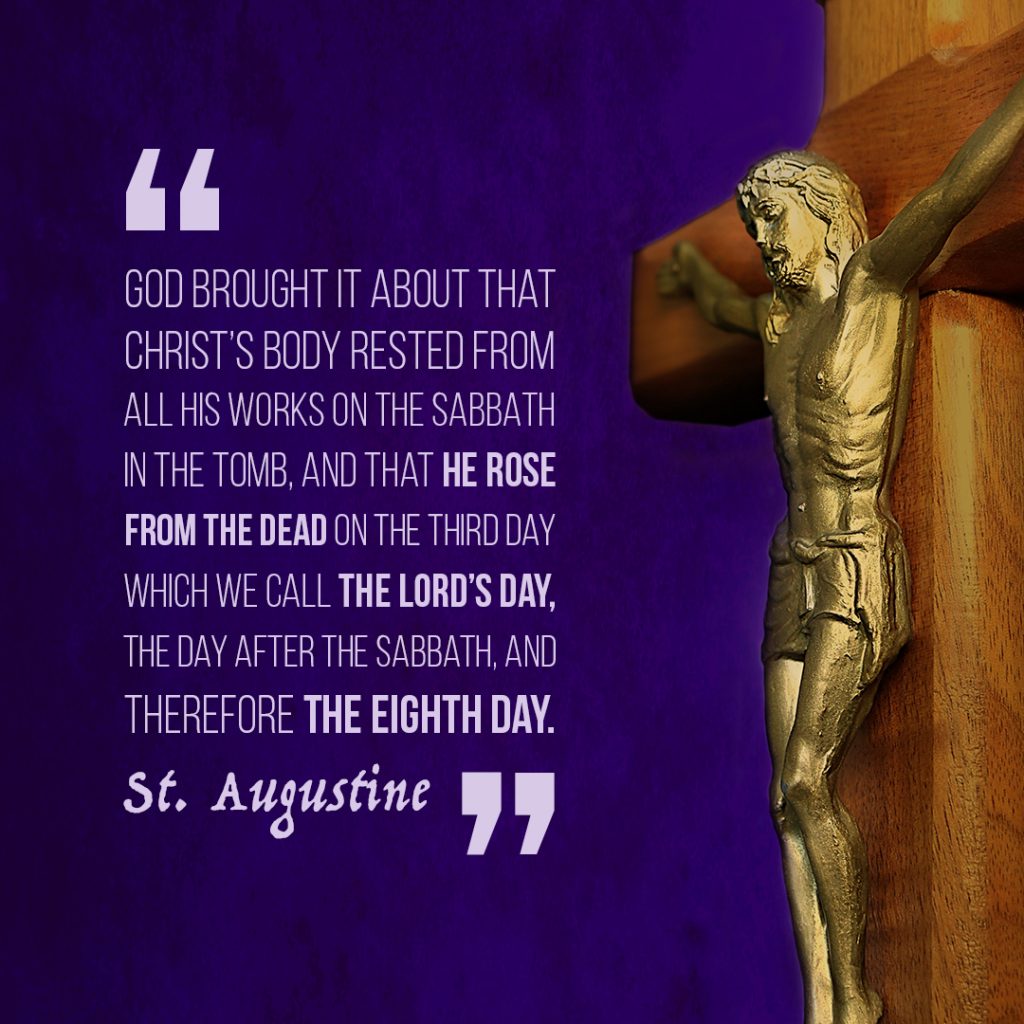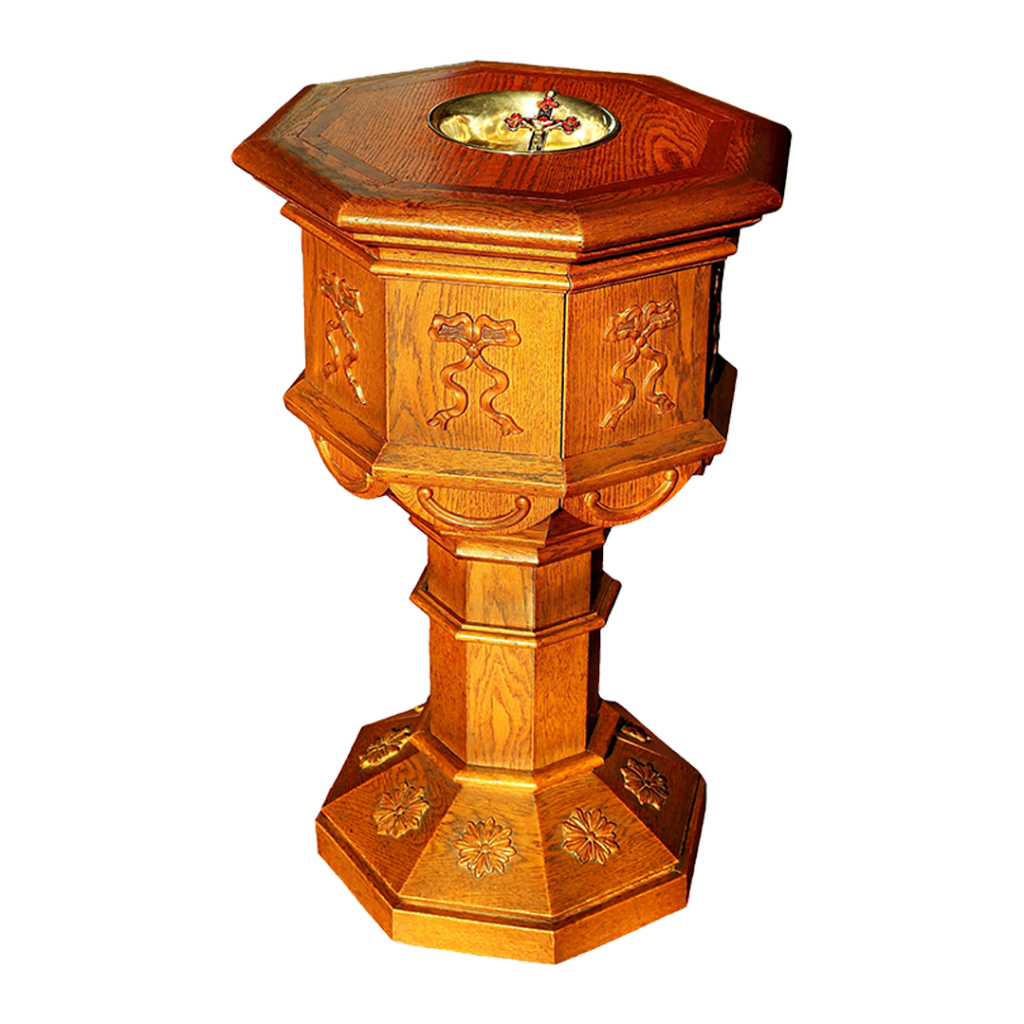The Eighth Day of the Week
 by Timothy Teuscher
by Timothy Teuscher
A week, as we all know, is a seven-day period of time usually considered to extend from Sunday to Saturday. This pattern has been going on ever since the beginning of creation when God created the heavens and the earth in six days and then rested on the seventh day. As far as we human beings are concerned, a week has seven days. It’s part of our created nature. A week has a beginning, a middle, and an end—a lot like life itself. And you don’t get an eighth day.
That’s what those women were thinking who “on the first day of the week, at early dawn, went to (Jesus’) tomb, taking the spices they had prepared” (Luke 24:1). It’s Sunday morning, the first day of a new week; and the first day of the rest of their hopeless lives—hopeless because the One who was their hope was now resting in a tomb. That, after all, is how it works in this world. For whether it be a week or a life, there just isn’t an eighth day.
In the Old Testament, however, we see that God makes a big deal about an eighth day. Newborn baby boys were to be circumcised on the eighth day—the day when they became part of God’s people. When a leper thought that he was healed of his disease, he was to show himself to the priest; and the priest would declare him to be clean only after eight days had passed. When Solomon’s temple was built, the people celebrated for an entire week, and then the next day, the eighth day, the temple was dedicated, while the cloud of God’s glory and His presence filled the Holy of Holies.
Christians for the past 2,000 years or so have traditionally gathered for worship on Sunday, the Lord’s Day, because it is the day of Jesus’ resurrection from the dead—the eighth day.
Note this well, for the eighth day was set aside for consecration, for deliverance, for cleansing, for healing, for restoration. It is as if God was saying: “Life in this world takes place in seven-day units. But when it comes to eternal life, to life with Me, you must look for an eighth day.”
And so, along comes Holy Week which begins on Palm Sunday and ends with Easter Sunday—eight days actually. The very One who created Adam on the sixth day and breathed into his flesh the breath of life, now suffers in His flesh on the cross and breathes His last on that same day—Good Friday. The One who rested on the seventh day from all His work of creation, now rests in a tomb on that same day—Holy Saturday. The next day—the eighth day— sees angels greet the women at Jesus’ empty tomb with these words: “Why do you seek the living among the dead? He is not here, but has risen! Remember how He told you while He was still in Galilee, that the Son of Man must be delivered into the hands of sinful men and be crucified and on the third day rise” (Luke 24:5-6). And the reason or purpose of this? St. Paul answers: “Christ has been raised from the dead, the first-fruits of those who have fallen asleep…. For as in Adam all die, so also in Christ shall all be made alive” (1 Corinthians 15:20, 22).
The early church father Cyprian put it this way: “The eighth day, that is, the first day after the Sabbath, was to be that on which the Lord should rise again, and should quicken us, and give us circumcision of the spirit.” Or as St. Augustine wrote: “God brought it about that Christ’s body rested from all His works on the Sabbath in the tomb, and that He rose from the dead on the third day, which we call the Lord’s Day, the day after the Sabbath, and therefore the eighth day.”

For this reason, Christians for the past 2,000 years or so have traditionally gathered for worship on Sunday, the Lord’s Day, because it is the day of Jesus’ resurrection from the dead—the eighth day. Today, whether we gather on a Saturday afternoon or Sunday morning or Monday evening for worship, it is still always the eighth day—the day when, because of Jesus’ resurrection from the dead, God the Father Almighty heals and delivers, cleanses and restores, recreates, consecrates, and dedicates people like you and me to Himself forever—in the Absolution, in His Word, in the Holy Supper of His Son’s body and blood, and in Holy Baptism (which, by the way, was traditionally administered from an eight-sided font!)
And it will still be that eighth day of the week when, at the end of this age, “the Lord Himself will come down from heaven, with a loud command, with the voice of the archangel and with the trumpet call of God, and the dead in Christ will rise first” (1 Thessalonians 4:16). Yes, on that eighth day at the end of time, the risen Lord Jesus Himself will call out to you in your resting place in the grave: “Come, you who are blessed by My Father; take your inheritance, the kingdom prepared for you since the creation of the world” (Matthew 25:34). Have a blessed Eighth Day!
———————
Rev. Timothy Teuscher is President of Lutheran Church–Canada (LCC).



